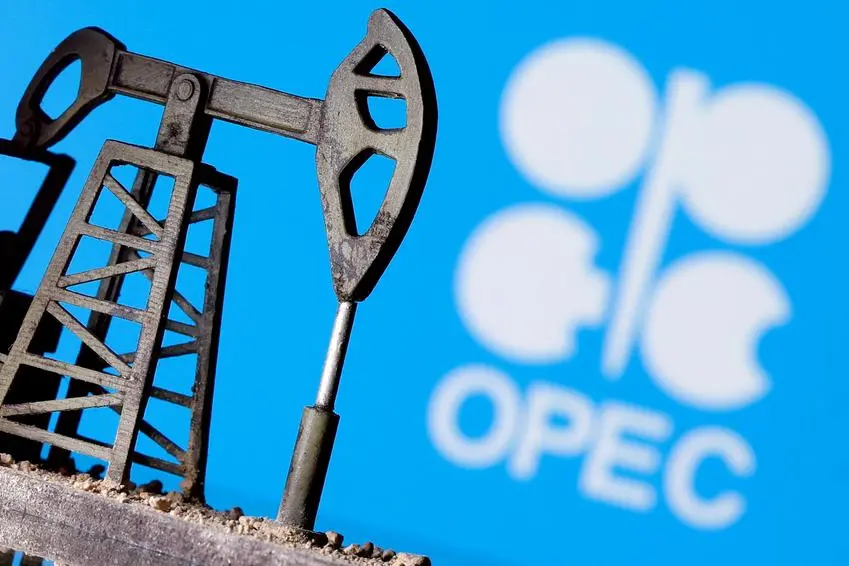PHOTO
OPEC+ is discussing delaying an oil output increase scheduled to start in October after oil prices hit their lowest in nine months, four sources from the producer group told Reuters on Wednesday.
The move comes as oil prices have been falling together with other asset classes on concerns about a weak global economy and particularly soft data from China, the world's biggest oil importer.
Last week, the Organization of the Petroleum Exporting Countries and allies led by Russia, or OPEC+ as it is known, was set to proceed with a 180,000 barrels-per-day output hike in October, part of a plan to gradually unwind its most recent cuts. Still, fragile oil market sentiment over the prospect of more supply from OPEC+ and an end to a dispute halting Libyan exports, coupled with a weakening demand outlook, have raised concern within the group, one of the sources said.
A delay to the October output increase is looking "highly possible," another of the four OPEC+ sources said. All of the sources declined to be identified by name.
Oil prices rose on the possible delay, with global benchmark Brent crude climbing by over $1 to a session high of $74.80 a barrel and later giving up its gains to fall to about $73, its lowest since December.
OPEC and the Saudi government communications office did not immediately respond to requests for comment.
CHINA CONCERNS
A dispute between rival factions in OPEC producer Libya over control of the central bank that led to a loss of at least 700,000 bpd of production has supported oil in recent weeks.
But prices slumped by about 5% on Tuesday on news that a possible deal to resolve the conflict was in the works. Weak Chinese demand and a slump in global refining margins which could prompt refiners to process less crude, have also weighed.
"China's underperformance has dented 2024 growth projections and has continued to trail both 2023 crude import and refinery throughput levels," RBC Capital analyst Helima Croft said in a note.
It may be prudent for OPEC+ to wait until December before returning extra barrels to the market, she added.
In all, OPEC+ is cutting output by a total of 5.86 million bpd, or about 5.7% of global demand, in a series of steps agreed since late 2022 to support the market due to uncertainty over the demand outlook and rising supply outside the group.
OPEC+ agreed in June to extend 3.66 million bpd of those cuts until the end of 2025. It also agreed to prolong the most recent cuts - a 2.2 million bpd cut by eight members - by three months until the end of September 2024, and to then gradually ease this cut from October to September 2025.
The planned 180,000 bpd output increase in October, which may now be delayed, was scheduled to come from the eight OPEC+ members who have been making this most recent layer of cuts.
(Reporting by Alex Lawler, Olesya Astakhova, Ahmad Ghaddar and Maha El Dahan. Additional reporting by Yousef Saba in Dubai; Editing by Louise Heavens, Emelia Sithole-Matarise and Sharon Singleton)





















